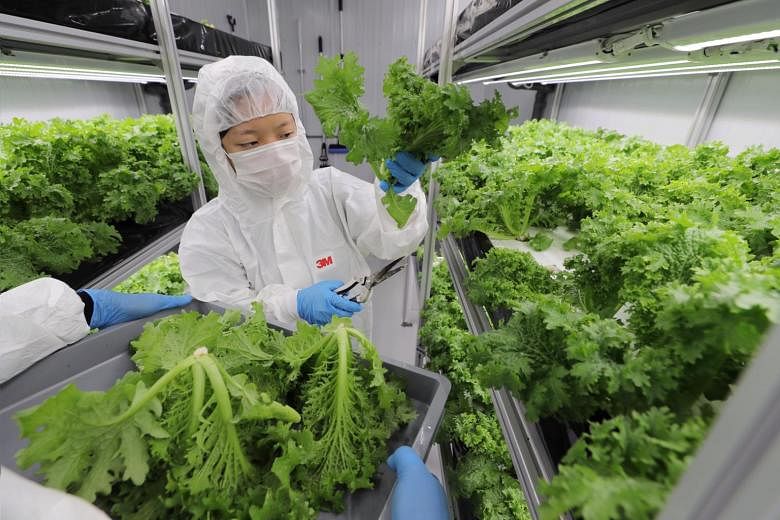SINGAPORE - Although an overwhelming majority of people here said they would buy more locally grown food, only around two-thirds of them can easily identify home-grown produce.
A food perception survey commissioned by the Singapore Food Agency (SFA) and Ministry of the Environment and Water Resources (MEWR) in January this year found that 94 per cent of 1,500 respondents said they were willing to buy local, but only around 65 per cent could identify such produce when shopping for groceries.
Senior Minister of State for the Environment and Water Resources Amy Khor shared these findings on Saturday (July 18) during the first virtual meeting of a citizens' workgroup convened to brainstorm ideas to match demand for local produce with supply.
She said there have been various initiatives to improve the supply of local produce, highlighting the Government's funding support for the local agri-food industry.
This includes the $144 million available under the Singapore Food Story R&D programme and a $30 million "30 x 30 Express" grant for farmers to accelerate their local food production.
However, she said this must be complemented by a growth in demand.
"Increasing supply is just one side of the equation. If our farmers are willing to increase supply but there is no uptake, no demand, then there is really no incentive for the farmers to increase their local production," she said.
Last year, MEWR announced its goal for home-grown produce to meet 30 per cent of Singapore's nutritional needs by 2030, otherwise known as its "30 by 30" goal.
Such local food production is a key strategy that the Republic must seriously pursue to ensure food security in Singapore, added Dr Khor.
The importance of food security has been underscored in the ongoing Covid-19 pandemic which has disrupted food supply chains, said Dr Khor, adding that climate change can also impact supply chains.
However, it will take a "whole of nation effort" to reach MEWR's "30 by 30" goal, she said.
"We need ideas from citizens themselves on how we can... co-create and co-deliver solutions or ideas," she said, noting that she was encouraged by the sign-up rate for the citizens' workgroup.
Close to 400 people expressed interest in the workgroup, but only around 50 were picked for it, with participants ranging from professionals in the food industry, to students and avid gardeners, she added.
In the inaugural session that lasted three hours on Saturday, participants were split into smaller groups, where they were told about the current state of local food production.
Participants will continue to meet over five more sessions till Oct 24, when they will present their ideas to MEWR and SFA.


